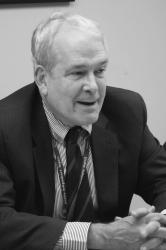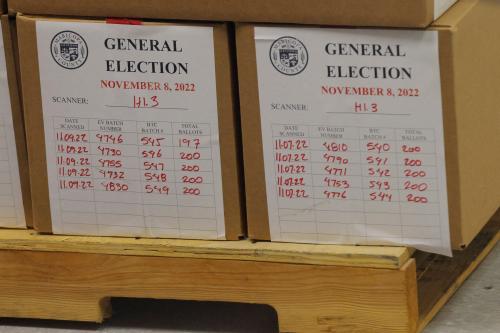

2:00 pm EDT - 4:00 pm EDT
Past Event
2:00 pm - 4:00 pm EDT
1775 Massachusetts Ave., NW
Washington, DC
Dr. Petter Nore is the Director of the Oil for Development (OfD) program of the Norwegian Agency for Development Cooperation (NORAD). Oil for Development began in 2005 in an effort to combat poverty in oil-producing states by channelling oil and gas revenues so as to make oil a “blessing” instead of a “curse”. Dr. Nore said the resource curse is not inevitable, and that through social welfare and environmental stewardship, stability in oil-producing nations can translate into increased security of global supply.
Oil for Development operates mainly in Africa, as well as a few Latin American and Asian countries, and peripheral engagement with the Middle East. Its anti-poverty aim is an extension of Norwegian foreign policy. Norway is well-suited to take on this role and offer guidance to those nation states that welcome it, as it is a prime example of a country that successfully escaped the resource curse. During the roundtable, Dr. Nore noted that OfD’s efforts are always demand-driven, and that institutional change and capacity-building take at least a generation to bear fruit. In that time, OfD works on resource management by strengthening local institutions, growing resource databases, and implementing legal and regulatory frameworks, making the state a vital part of the solution. It builds environmental management capacity through basic legislation and efforts to minimise flaring. It also builds revenue management capacity through taxation regimes, compliance with EITI, budget planning, and how to handle and oil fund. Good governance is important, but it is not everything. Civil society must have a stake in transparency and management.
Sound development and stable oil-producing states increase global supply security. Dr. Nore does not subscribe to the “peak oil” theory, and therefore finds that the problem with supply is not having sufficient hydrocarbons, but producing and delivering them – which is a political issue. Stable states pose less risk and attract more international investment, and increased investment in their oil sectors allows these states to increase production. Oil for Development essentially offers another policy variable in the security of supply equation.
Dr. Nore pointed to examples of OfD engagement, including electronic monitoring of production of every oil well in Nigeria as a first step for the government to combat corruption in the energy sector.
He also addressed Norway’s domestic energy situation. Oil production has fallen over the past 4-5 years, due to little new oil being found and delays in existing projects. Gas production, however, is on the rise, and Norway is set to become an even bigger gas exporter to Europe than it already is – it currently supplies about 29% of European gas consumption. If Russia does not ramp up production, Norway could overtake Russia in terms of supply in the next decade. Dr. Nore cited the role of LNG as potentially changing the parameters of gas politics in Europe.


Amy Liu, Chris Meserole, Molly E. Reynolds, Rashawn Ray, Keon L. Gilbert, Carol Graham, Richard G. Frank, Jenny Schuetz, Tonantzin Carmona, Glenn D. Rudebusch, John W. McArthur
February 6, 2023

William A. Galston, David Dollar
November 15, 2022

Fiona Hill, John Haltiwanger
July 16, 2022